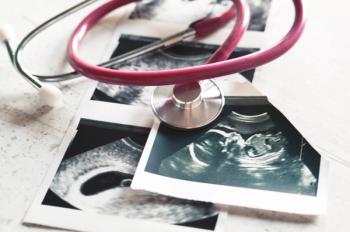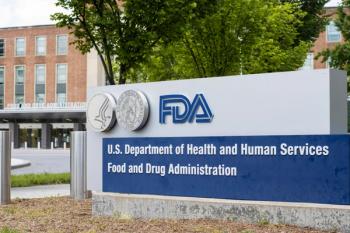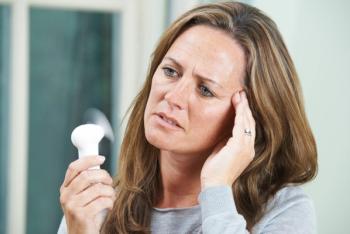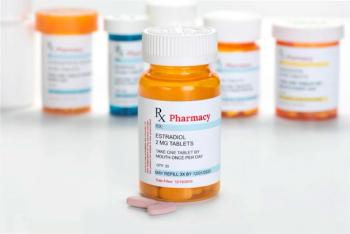
Life Transitions
Latest News
Latest Videos

CME Content
More News

Many women experience perimenopause symptoms in their 30s, but most delay treatment. Early awareness can improve care and quality of life.

A new study highlights the anti-aging properties of key hormones, offering potential treatments for wrinkles, hair graying, and other signs of aging.

A large-scale study confirms that hormone therapy does not increase the risk of glioma, offering reassurance to postmenopausal women considering treatment.

A recent study highlights worsened walking and motor skills in postmenopausal women with multiple sclerosis, shedding light on the need to determine hormone therapy benefits.

A recent study highlights improved sexual function and reduced distress among nonheterosexual women during menopause compared to their heterosexual counterparts, shedding light on how sexual identity impacts well-being.

The FDA has added a boxed warning for fezolinetant (VEOZAH; Astellas), highlighting the rare occurrence of serious liver injury in patients taking the menopause treatment.

Weak handgrip strength may predict diabetes risk in postmenopausal women, highlighting the importance of muscle strength in diabetes prevention.

Advances in reproductive technology are making pregnancies over the age of 50 years possible, but they come with unique challenges, requiring tailored prenatal and postpartum care.

In a recent study, an inverse relationship was discovered between anti-Müllerian hormone levels and early menopause, highlighting the need to develop interventions for fertility preservation based on genetics.

In a recent study, menopausal women with frequent and time-consistent vasomotor symptoms were more likely to develop diabetes than those with reduced vasomotor symptoms.


The New Drug Application (NDA) acceptance is supported by positive data from 3 clinical trials (OASIS 1, 2, and 3).

In a recent study, patients with early puberty had increased rates of diabetes, obesity, and other metabolic conditions, as well as increased mental health risks.

PH80 nasal spray shows promise in reducing menopausal hot flashes, offering an effective and safe non-hormonal treatment option.

At the 2024 Annual Meeting of The Menopause Society, the positive safety and efficacy data of fezolinetant against sleep disturbances from the SKYLIGHT 1 and 2 trials was presented.

A new study presented at the 2024 Annual Meeting of The Menopause Society shows hormone therapy remains beneficial for women over 65, helping manage menopause symptoms like hot flashes and improving quality of life.

A new study presented at the 2024 Annual Meeting of the Menopause Society found cognitive behavioral therapy can effectively address sexual concerns during menopause, improving overall well-being.

Female veterans with PTSD are twice as likely to experience early menopause and related health risks, according to a study presented at the 2024 Annual Meeting of The Menopause Society.

In a recent study presented at the 2024 Annual Meeting of The Menopause Society, 59% of nocturnal hot flashes occurred during the second half of the night, a time linked to increased cardiovascular disease risk.

A study presented at the 2024 Annual Meeting of The Menopause Society, found that women who reported physical intimate partner violence also demonstrated decreased working memory performance over time.

A significant connection has been identified between severe menopause symptoms and cognitive impairment in postmenopausal women, according to findings from a study published in Menopause, the journal of The Menopause Society.

A JAMA Pediatrics study found 37% of adolescents with gender dysphoria began hormone therapy within 2 years, highlighting barriers and inequities in care.

A recent study found that women with a shorter reproductive lifespan had increased odds of multimorbidity compared to those with a longer reproductive lifespan, indicating a need to assess reproductive factors to determine high-risk patients.

A recent study found that implementing postpartum transition support significantly boosts primary care engagement and reduces readmissions for chronic conditions.

A recent highlights elevated morbidity and mortality risks in premenopausal women underusing estrogen therapy after oophorectomy, underscoring the critical need for hormone therapy to mitigate adverse health outcomes.



















